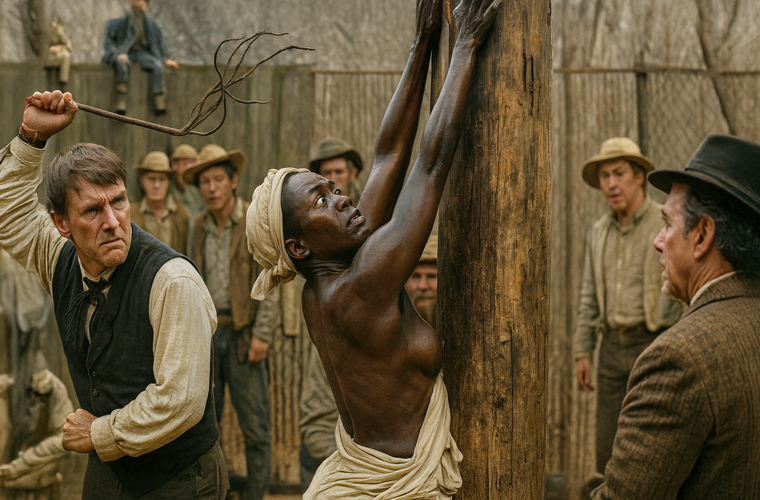Peter Burnett and Racial Policies in 19th-Century America
By 1865, slavery was outlawed in the United States, granting former slaves the right to own property and live independently, provided they followed local laws. However, many laws and societal attitudes continued to discriminate against Black Americans, reflecting deep-seated prejudice. Peter Hardeman Burnett, California’s first governor and a prominent figure in early American governance, exemplified these discriminatory views. Born on November 15, 1807, in Nashville, Tennessee, Burnett grew up in poverty, though his family owned enslaved people. This background did not foster empathy but instead fueled his lifelong prejudice against African Americans. Despite his notable achievements—such as serving on Oregon’s provisional supreme court, becoming California’s first governor, and contributing to Sacramento’s development—Burnett’s legacy is overshadowed by his racist policies and actions.
In Oregon, Burnett was instrumental in enacting the infamous “Lash Law” in the 1840s, which mandated that all Black individuals, free or enslaved, be whipped twice yearly (up to 39 lashes) until they left the territory. This law undermined an earlier ban on slavery, effectively legalizing it for three years by allowing slaveholders a grace period to free enslaved people. Though the whipping penalty was later modified and possibly never enforced, it remains a defining aspect of Burnett’s reputation in Oregon.
Burnett’s prejudice extended to California, where he served as governor after the 1849 Constitutional Convention. While the convention banned slavery in the new state, it also denied Black individuals the right to vote and debated excluding them entirely from California. As governor, Burnett pushed for exclusionary laws, arguing that African Americans would take jobs from whites and remain discontented as second-class citizens. He warned that freed slaves from the South would flood California, despite only about 1,000 Black individuals, free and enslaved, working in the state’s mining camps and other jobs.
Burnett’s racism was not limited to African Americans. He advocated for harsh policies against Native American tribes, predicting a “war of extermination,” and later opposed Chinese immigration, claiming in his autobiography, Recollections and Opinions of an Old Pioneer, that Chinese workers would dominate the economy and corrupt white youth. His governance was also marked by controversial decisions, such as temporarily approving the death penalty for robbery and major property crimes and changing the 1850 Thanksgiving observance from Thursday to Saturday for personal convenience.
One of Burnett’s most criticized actions came in 1859 as a California Supreme Court judge. He authored the majority opinion in a case that would have returned Archy Lee, a Black man, to slavery in Mississippi, despite California’s free-state status. Lee’s legal team successfully circumvented the ruling, securing his freedom, but the decision further tarnished Burnett’s reputation. Burnett’s early life also reflected his prejudice. As a young store owner in Tennessee, he killed an enslaved Black man who broke into his store by setting a deadly trap with a rigged rifle. Though he expressed remorse and faced no charges, the incident underscored his callous attitude toward Black lives. Additionally, during the 1843 Oregon emigration, a young African-American woman or girl associated with Burnett’s family reportedly drowned in the Columbia River, suggesting he may have attempted to bring an enslaved person to Oregon.
Despite his accomplishments—such as opening the first wagon road from Oregon to California in 1848 and serving in various judicial and legislative roles—Burnett’s legacy is defined by his racism and flawed leadership. His actions, including attempts to institutionalize racial exclusion and his role in divisive debates over race and slavery, contributed to the tensions that led to the Civil War. Burnett died in San Francisco on May 17, 1895, largely forgotten, his contributions overshadowed by his discriminatory policies.

